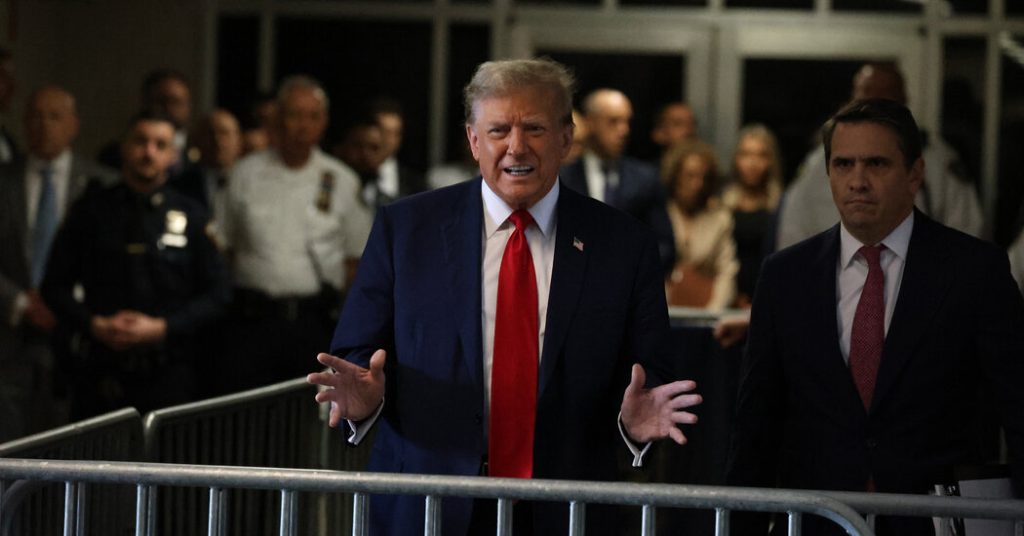The Supreme Court unanimously rejected a trademark application for the phrase “Trump too small” in a fractured decision that debated the use of historical methodology in First Amendment disputes. The case involved a federal law prohibiting trademarks referencing living individuals without their written consent. Justice Thomas concluded that the restriction does not violate the First Amendment based on history and tradition. However, Justice Sotomayor criticized the indeterminacy of the court’s historical inquiry, calling it the equivalent of finding friends in a crowded party without guidance.
The lawyer, Steve Elster, applied for the trademark to convey that some aspects of President Trump are diminutive, using the phrase on T-shirts with criticisms of Mr. Trump’s policies. Justice Thomas noted the reference stemmed from a remark made by Senator Marco Rubio during a 2016 presidential debate about Mr. Trump’s hands. The Patent and Trademark Office rejected the application, but a federal appeals court ruled in favor, citing First Amendment protection for political criticism against public figures.
The Supreme Court had ruled in previous cases that certain provisions of trademark law violated the First Amendment due to viewpoint discrimination. In contrast, the challenged provision in this case applies to both positive and negative references to living individuals. Justice Thomas argued that the provision, while content-based, is viewpoint-neutral, rendering it constitutional based on historical restrictions on trademarking names. Justice Sotomayor, joined by Justices Kagan and Jackson, agreed the provision was constitutional but questioned the majority’s reliance on a historical methodology.
The Supreme Court’s decision in Vidal v. Elster differed from prior trademark cases where provisions disallowing registration of immoral, scandalous, or disparaging marks were deemed unconstitutional due to viewpoint discrimination. The court’s ruling in this case focused on a potentially different standard based on historical and traditional restrictions, causing a split in the rationale among the justices. Justice Sotomayor raised concerns about the confusion and unpredictability resulting from the court’s adoption of a history-based approach in free speech challenges, as seen in the aftermath of a recent Second Amendment case.
Overall, the Supreme Court’s decision in Vidal v. Elster upheld a provision prohibiting the registration of trademarks referencing living individuals without their consent, based on history and tradition rather than viewpoint discrimination. The ruling highlighted a shift in the court’s approach to assessing the constitutionality of trademark laws, drawing criticism from some justices for introducing uncertainty and inconsistency in First Amendment cases. The case added complexity to the ongoing debate over the intersection of free speech rights and trademark protection in the United States.








